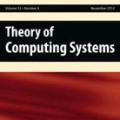Within the model-theoretic framework for supervised learning introduced by Grohe and Tur\'an (TOCS 2004), we study the parameterized complexity of learning concepts definable in monadic second-order logic (MSO). We show that the problem of learning an MSO-definable concept from a training sequence of labeled examples is fixed-parameter tractable on graphs of bounded clique-width, and that it is hard for the parameterized complexity class para-NP on general graphs. It turns out that an important distinction to be made is between 1-dimensional and higher-dimensional concepts, where the instances of a k-dimensional concept are k-tuples of vertices of a graph. The tractability results we obtain for the 1-dimensional case are stronger and more general, and they are much easier to prove. In particular, our learning algorithm in the higher-dimensional case is only fixed-parameter tractable in the size of the graph, but not in the size of the training sequence, and we give a hardness result showing that this is optimal. By comparison, in the 1-dimensional case, we obtain an algorithm that is fixed-parameter tractable in both.
翻译:暂无翻译



